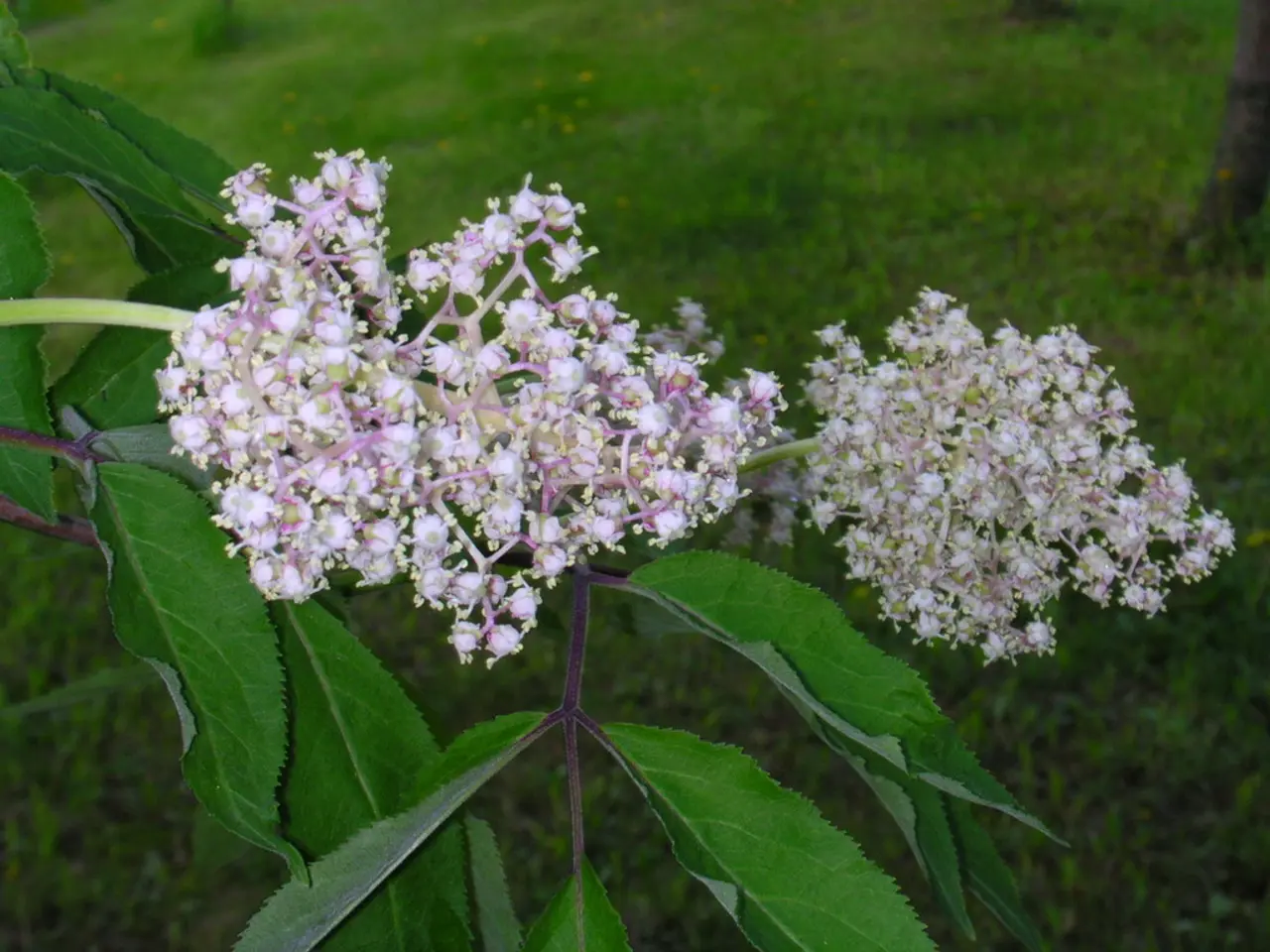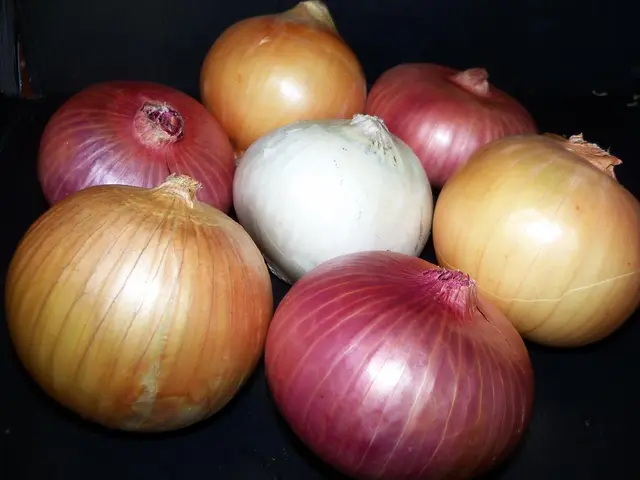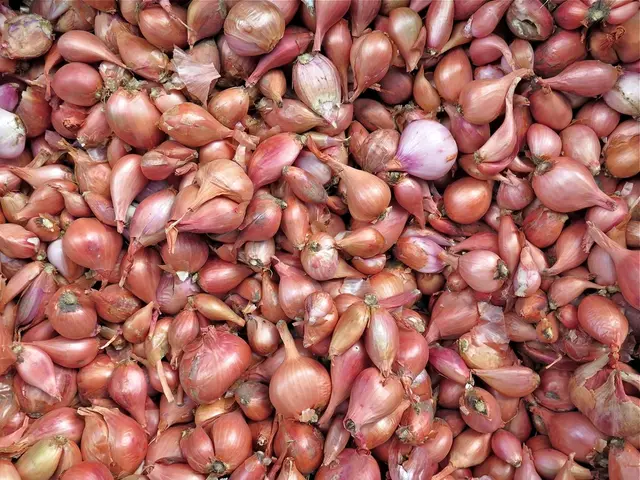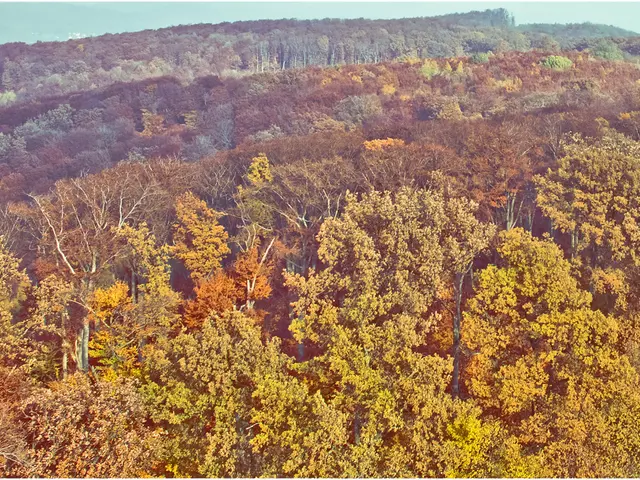Easy, Fuss-Free Landscaping Choices: Ideal Ground Covers for a Stress-Free Garden Appearance
Transform your drab backyard into a stunning oasis with these fantastic ground cover ideas! Need help sprucing up that neglected stretch of land? We've got you covered!
Whether you're looking to add some pops of color to those shady spots, fill in the gaps between stepping stones, or create a verdant carpet in your yard, there's a ground cover plant that's perfect for the job.
Why Plant Ground Covers
There are numerous advantages to incorporating ground covers into your landscape, as I've experienced firsthand as a green thumb. They:
- Naturally enhance the aesthetics of your garden, concealing unappealing areas or serving as captivating focal points.
- Protect against soil erosion caused by adverse weather conditions.
- Act as an effective weed preventative measure.
Wondering where to begin? Fear not, as I've compiled a humongous list of ground cover options for your own personal paradise!
A Cornucopia of Choices
While most ground covers in their natural habitat are grass varieties, your choices certainly don't stop there. Moss, low-growing shrubs, and an array of plants with varying shapes and sizes are all on the table, from creeping vines to low-growing shrubs.
Succulent Dreams: Ground Covers for Clay Soils
collaboration with Sara Ryder
Got clay soil? Here are 27 plants that make fantastic ground covers for clay soil areas:
- Asiatic Jasmine (Trachelospermum asiaticum) - zones 7-9
- Basket of gold (Alyssum alyssoides) - zones 4-7
- Bishop's hat (Epimedium) - zones 5-8
- Bugleweed (Ajuga reptans) - zones 4-9
- Bunchberry (Cornus canadensis) - zones 2-6
- Creeping Juniper (Juniperus horizontalis) - zones 3-9
- Creeping Phlox (Phlox stolonifera) - zones 3-9
- Creeping Thyme (Thymus serpyllum) - zones 4-9
- Dragon's Blood (Sedum spurium 'Schorbuser Blut') - zones 3-8
- Ice Plant (Aizoaceae) - zones 5-10
- Japanese pachysandra (Pachysandra terminalis) - zones 4-8
- Sweet woodruff (Galium odoratum) - zones 4-9
- Veitch's silver moss (Hypnum peruvianum 'Kreutter's Zone') - zones 3-8
- Westwood Pierson's cyclamen (Heleborine foetida ssp piersonii) - zones 5-8
- Woolly thyme (Thymus praecox 'Dentatus') - zones 4-9
- African daisy (Argyranthemum frutescens) - zones 8-11
- American bugle (Ajuga ciliata) - zones 4-8
- Baby blue-eyes (Nemophila menziesii) - zones 6-10
- Broadleaf and narrowleaf sedge (Carex davidii, Carex laevigata) - zones 6-9
- Catalina island ironwood (Lyonothamnus floribundus subsp. asplenifolius) - zones 9-11
- Drought-tolerant sedums (Sedum reflexum, Sedum reflexum 'Angelina') - zones 3-9
- Fig buttercup (Penstemon atevidianus) - zones 7-10
- Miner’s lettuce (Claytonia perfoliata) - zones 4-9
- Spurge (Euphorbia lathyris) - zones 5-9
- Yellow stonecrop (Sedum stahlii) - zones 6-9
- Yucca helanda (Yucca spreads well in a wide range of conditions and is excellent for clay soils. It prefers full sun and can grow to be 5 feet tall with large, dark green foliage.)
- Groundcovers that can handle dry shade include: Lily of the Valley (Convallaria majalis), Dead Nettle (Lamium maculatum), and Coral Bells (Heuchera spp.).
Gleaming Green: Ground Covers for Shady Spots
collaboration with Backyard Garden Lover
Fret not if you've got a shady backyard: here are some exceptional ground cover options for those darker areas:
- Asiatic Jasmine (Trachelospermum asiaticum) - zones 7 to 9
- Basket of gold (Alyssum alyssoides) - zones 4 to 7
- Bishop's hat (Epimedium) - zones 5 to 8
- Bugleweed (Ajuga reptans) - zones 4 to 9
- Bunchberry (Cornus canadensis) - zones 2 to 6
- Creeping Juniper (Juniperus horizontalis) - zones 3 to 9
- Creeping Phlox (Phlox stolonifera) - zones 3 to 9
- Creeping Thyme (Thymus serpyllum) - zones 4 to 9
- Dragon's Blood (Sedum spurium 'Schorbuser Blut' ) - zones 3 to 8
- Ice Plant (Aizoaceae) - zones 5 to 10
- Japanese pachysandra (Pachysandra terminalis) - zones 4 to 8
- Sweet woodruff (Galium odoratum) - zones 4 to 9
- Vancouveria (Vancouveria hexandra) - zones 5 to 8
- Wild ginger (Asarum) - zones 4 to 8
- Yellow archangel (Lamium galeobdolon) - zones 4 to 9
Sun-Kissed Beauties: Ground Covers for Full Sun
collaboration with YAY Images
If you've got a yard that basks in full sun, never fear! There are still plenty of ground cover options that thrive in these conditions:
- Blue star creeper (Isotoma fluviatilis) - zones 6 to 9
- California lilac (Ceanothus) - zones 8 to 10
- Common manzanita (Arctostaphylos) - zones 8 to 10
- Golden storksbill (Erodium chrysanthum) - zones 4 to 9
- Irish moss (Sagina subulata) - zones 4 to 8
- Miniature daisy (Bellium minutum) - zones 5 to 9
- Mountain sandwort (Arenaria montana) - zones 4 to 8
- Plumbago (Ceratostigma plumbaginoides) - zones 8 to 11
- Rockspray cotoneaster (Cotoneaster horizontalis) - zones 5 to 7
- Shrubby cinquefoil (Potentilla fruticosa) - zones 3 to 7
- Silver carpet (Dymondia margaretae) - zones 4 to 8
- Snow in summer (Cerastium tomentosum) - zones 3 to 7
- St. John's Wort (Hypericum) - zones 5 to 9
- Veronica (Speedwell) - zones 3 - 11
When choosing ground covers for full sun, it is imperative to consider soil type, moisture levels, and climate, selecting plants that are well-suited to your specific growing conditions. With these options, you can craft a vibrant, colorful landscape that thrives in full sun.
Lush and Lovely: Perennial Ground Covers
collaboration with YAY Images
For lasting beauty, try incorporating perennial ground covers in your garden:
- Creeping thyme: This magnificent herb can add fragrance along with its small pink or purple flowers. It's drought-tolerant and perfect for sunny areas.
- Creeping Phlox: With its colorful flowers, creeping phlox is ideal for erosion control on slopes. They're family-friendly, as they're safe for children and pets.
- Creeping Jenny: This low-growing plant with bright green leaves can create a lush, carpet-like effect, even in shady areas. It's well-suited for wet spots and shallow water.
Climbing Virtues: Ground Cover Vines
Nurture your green thumb with these gorgeous ground cover vines:
- English Ivy: This versatile vine can be trained to grow along the ground, up trees, or climb walls. Plant it in partial shade for best results, but note that it can become invasive.
- Clematis: This charming vine comes in various colors and can be trained to grow along the ground or up a trellis. It prefers full sun to partial shade and well-drained soil.
- Honeysuckle: Another scent-sationable option, honeysuckle can be used as ground cover or trained to climb. It enjoys full sun to partial shade and well-drained soil. As always, be wary of invasive species, so be sure to research which honeysuckle varieties are suitable in your area.
When selecting a vine for ground cover, consider its growth pattern and how it fits into your overall garden design. Some vines can be invasive, so opt for those that won't overrun your yard. And don't forget to provide support for your vines, whether it's a trellis, fence, or other structure, to ensure their growth stays on track!
Expressive Landscaping: Ground Covers in Action
cooperation with Backyard Garden Lover
Use ground cover plants to express your individuality and bring your garden to life:
- Substitute difficult-to-mow spaces, such as slopes and shade, with ground covers.
- Plant ground cover around trees to create a stylish, natural border and prevent weed growth.
- Mix low-growing plants with taller ones and infuse colorful, fragrant flowers to create an interesting blend.
- Form a natural-looking pathway with an evergreen ground cover and trim regularly to create a dense, low-growing carpet.
- Create a mass planting of color-coordinated flowers to cover vast areas with color.
Pro Tip: When choosing ground cover plants, consider the amount of sunlight or shade in the area, as well as the soil type. Some ground cover plants enjoy moist soil, while others prefer well-drained soil.
- Incorporating perennials such as creeping thyme, creeping phlox, and creeping Jenny into your garden can offer lasting beauty and a lush, carpet-like effect.
- For shady spots, consider ground covers like Asiatic Jasmine, Bishop's hat, or wild ginger to naturally enhance the aesthetics and protect against soil erosion.
- When landscaping, use ground covers to express personal style by creating natural borders around trees, forming low-growing pathways, or mass planting color-coordinated flowers.*opt for ground covers that are well-suited to your specific soil type, moisture levels, and climate for a vibrant, thriving landscape.
- If you have a sunny yard, consider plants like blue star creeper, common manzanita, or Veronica as ground cover options that thrive in full sun.
- To create a verdant carpet in your backyard, consider using ground covers like creeping juniper, creeping Phlox, or Irish moss, which can fill in gaps between stepping stones or conceal unappealing areas.








